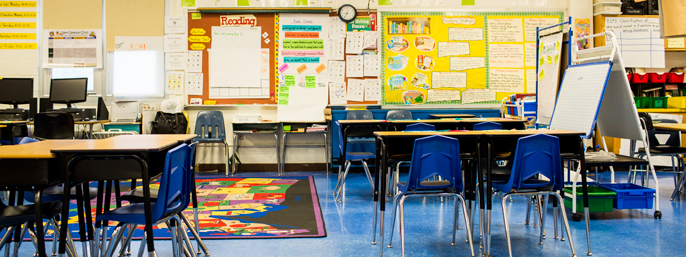The Benefits of Enrolling Early in a Quality Kindergarten Program
Wiki Article
Factors to Consider in Picking Private School: Understanding What Each Establishment Has to Deal for Your Kid's Development
Selecting a personal school for a kid involves cautious consideration of numerous factors. Parents should analyze the academic curriculum and training ideologies of different organizations. They need to also check out extracurricular tasks that could enrich their youngster's experience. In addition, comprehending the college's culture and values is necessary for positioning with household beliefs. As economic implications play a considerable function, it is vital to weigh tuition costs versus offered scholarships. How do these elements shape a child's development course?Academic Curriculum and Mentor Viewpoint
When selecting an exclusive institution, recognizing the scholastic educational program and mentor viewpoint is vital, as these elements substantially affect a kid's educational experience. Parents ought to check out the institution's strategy to mentor and the subjects used, as this can differ significantly amongst establishments. Some institutions may adopt a standard educational program focused on core subjects, while others could emphasize project-based understanding or interdisciplinary research studies.In addition, the teaching approach can shape class dynamics and trainee interaction. Colleges that prioritize a student-centered strategy frequently foster critical reasoning and cooperation, while those with a more organized setting may concentrate on technique and fundamental skills.
Extracurricular Activities and Enrichment Programs

Importance of Diverse Activities
While scholastic quality is frequently focused on in exclusive colleges, the value of diverse activities, consisting of after-school activities and enrichment programs, can not be overemphasized. These activities play a vital role in a youngster's all natural development, supplying chances for creativity, critical thinking, and teamwork. Participating in various quests enables trainees to explore their interests, discover brand-new enthusiasms, and create vital life abilities, such as time monitoring and self-discipline. Additionally, diverse tasks can promote a feeling of belonging and area, improving the general college experience. By taking part in clubs, sporting activities, and creative undertakings, trainees not just enrich their education and learning but additionally produce unforgettable experiences that add to their personal development. As a result, varied activities are important to promoting all-around individuals.Influence On Social Skills
How do extracurricular tasks and enrichment programs affect a kid's social abilities? These programs provide necessary opportunities for kids to engage with peers beyond the standard class setup. Participating in sports, clubs, or arts cultivates communication, synergy, and problem resolution. Youngsters learn to browse varied social settings, improving their capability to develop friendships and develop compassion. Additionally, taking part in different activities encourages confidence, as kids handle brand-new obstacles and obligations. As they work together on jobs or complete in teams, they likewise acquire important experience in leadership and participation. Eventually, a rich range of extracurricular offerings contributes substantially to a youngster's social advancement, preparing them for future social communications in both academic and personal contexts.College Culture and Worths
Comprehending the school society and worths is essential for parents evaluating exclusive education alternatives, as these components greatly influence a child's overall experience. Each organization personifies one-of-a-kind viewpoints, customs, and social norms that shape students' everyday lives. For circumstances, a college that highlights inclusivity might cultivate a helpful setting, encouraging youngsters to develop empathy and regard for varied backgrounds. Conversely, institutions that prioritize academic excellence might develop a competitive ambience, encouraging students to intend for high accomplishment.The placement of a college's worths with a family members's beliefs can enhance a child's feeling of belonging, enhancing positive habits and perspectives. Parents ought to investigate the college's mission statement, evaluate its disciplinary policies, and observe pupil interactions to gauge the pertinent culture. Ultimately, an institution's culture and values substantially impact not just scholastic success however also personal growth, gearing up youngsters with essential life skills for their future.
Class Dimension and Student-Teacher Ratio
Class size and student-teacher ratio play an important role in the academic experience supplied by independent schools. Smaller courses typically bring about improved individual focus, promoting better student involvement and understanding. Research indicates that these elements can substantially affect learning end results, making them essential factors to consider for moms and dads.Advantages of Smaller Classes
Smaller Kindergarten course dimensions greatly boost the academic experience by fostering much more personalized interest from instructors. In these environments, instructors can customize their guideline to satisfy individual trainee demands, permitting a much deeper understanding of the product. With fewer pupils, educators can a lot more conveniently determine those who might be having a hard time and give immediate support. This close interaction can cultivate more powerful connections between instructors and pupils, developing a helpful atmosphere helpful to learning. Furthermore, smaller classes usually promote higher involvement, as trainees may feel a lot more comfortable voicing their questions and thoughts. This vibrant motivates collective discovering and enhances overall classroom engagement. Ultimately, the benefits of smaller courses add extremely to a well-shaped academic experience that prioritizes student development and growth.Effect On Understanding Outcomes
The advantages of smaller sized courses extend past customized attention, substantially influencing discovering results. Research consistently shows that a lower student-teacher proportion promotes improved engagement, permitting instructors to customize direction to private demands. This environment urges energetic involvement, crucial thinking, and deeper understanding of the product. In smaller sized setups, teachers can more successfully determine and resolve finding out gaps, resulting in enhanced scholastic performance. Kindergarten. Additionally, pupils frequently really feel more comfortable expressing their thoughts and asking inquiries, which can further enhance the understanding experience. On the other hand, bigger course dimensions may restrict communication and comments, potentially preventing student growth. Because of this, when examining personal colleges, family members must take into consideration course dimension and student-teacher ratios as considerable elements affecting their kid's educational successCommunity Involvement and Parental Involvement
Exactly how can area engagement and parental participation enhance the academic experience secretive schools? These elements play an essential role in improving the finding out setting. When moms and dads proactively get involved in institution tasks, they cultivate a feeling of belonging and support among trainees. This involvement can take different types, such as volunteering for occasions, participating in conferences, or signing up with committees, which not only strengthens the college community yet also improves communication between instructors and family members.Neighborhood engagement extends this support by attaching the school with neighborhood organizations, businesses, and cultural institutions (Kindergarten). Such collaborations provide trainees with special learning opportunities, including internships and workshops, which add to their overall growth. In addition, schools that prioritize these connections frequently create an even more comprehensive atmosphere, allowing varied point of views to be shared. Eventually, area involvement and parental participation serve to create a joint and supportive environment that adds positively to pupils' scholastic and social success
Financial Considerations and Scholarships
Maneuvering the financial landscape of independent schools can be an intricate process for family members. Tuition expenses differ significantly, frequently influenced by aspects such as area, facilities, and the institution's track record. Family members have to evaluate their financial situation, thinking about not only tuition however likewise extra expenses like uniforms, fees, and extracurricular tasks.Lots of exclusive institutions use scholarship programs targeted at attracting diverse trainee populations - Kindergarten. These scholarships can relieve financial burdens and make top quality education and learning available to households with differing revenue degrees. It is essential for parents to make inquiries concerning the accessibility of merit-based and need-based scholarships and comprehend the application procedures entailed
Furthermore, some institutions provide flexible layaway plan that can ease immediate financial stress. By evaluating all monetary facets and exploring scholarship chances, households can make educated choices that align with their academic goals and monetary constraints.
Regularly Asked Concerns
Exactly How Do Institutions Support Students With Knowing Disabilities?
Schools sustain students with finding out handicaps through personalized education and learning plans, specialized mentor approaches, and added sources. They commonly provide tailored interventions, accessibility to support team, and inclusive settings to promote psychological and scholastic development.What Is the College's Method to Technique and Habits Monitoring?
The school's technique to technique and habits administration emphasizes positive support, clear expectations, and corrective techniques. Staff actively engage trainees in discussions regarding behavior, cultivating a supportive setting that encourages individual obligation and responsibility.Exactly How Do Institutions Deal With Pupil Transitions, Such as Moving to Higher Grades?
Institutions generally supply structured assistance during trainee adjustments, including orientation programs, mentorship opportunities, and customized scholastic planning. These steps intend to relieve stress and anxiety, advertise change, and assurance trainees are planned for the challenges of greater grades.What Are the Institution's Plans on Innovation Use in the Classroom?

How Do Institutions Analyze Student Progress and Offer Responses to Moms And Dads?
Schools examine pupil progression via regular evaluations, including tests, tasks, and class engagement. Feedback is given to parents via record cards, parent-teacher meetings, and online websites, guaranteeing continuous communication about each kid's scholastic advancement.
Report this wiki page